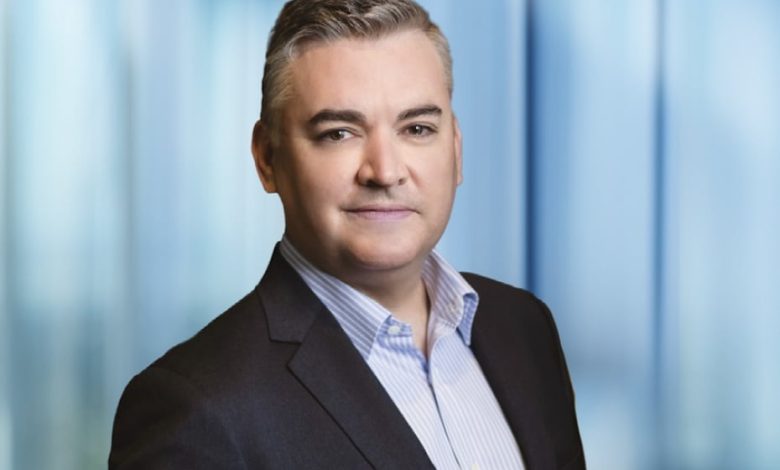Family offices must balance legacy with digital-first investing, says IQ-EQ GCCO

The Middle East is entering a historic phase of wealth transition, with more than $1tn set to pass to the next generation of family business heirs. For family offices in the UAE and across the region, this shift is reshaping governance, investment strategies, and even philanthropic priorities.
Richard Surrency, group chief commercial officer at IQ-EQ, speaks to Gulf Business about how predictive analytics can bridge generational divides, why governance structures are becoming more formalised, and how fund managers in the Gulf are navigating demands for operational excellence, sustainability, and a stronger local presence.
Family offices in the UAE are facing a historic wealth transfer. How do you see the next generation reshaping investment strategies while still honouring legacy and tradition?
The UAE and the wider Middle East is on the verge of a historic wealth transfer. Roughly $1tn (Dhs3.67tn) is moving to heirs and extended family members, with a third of these transitions already underway. It’s a pivotal moment for family offices in the region and they are required to think carefully about how their wealth is structured, protected, and set up for the long term, while honouring the legacy they have built upon.
What’s particularly interesting is the generational difference. Many of the founders built their wealth in a very different world — one very focused on energy and trade. But their successors have grown up in a highly globalised, digital, and asset-diverse environment. That’s naturally changing investment strategies, risk appetites, and even philanthropic priorities. But you can’t ignore tradition. The next generation still wants to honour the family’s legacy and hierarchy, so succession planning is a careful balancing act.
This is where technology, and predictive analytics in particular, can really act as a bridge between generations. Public markets are already using these tools to forecast performance and manage risk, but private markets and family offices have been slower to catch on. For the digital-native next generation, predictive analytics can help anticipate liquidity needs, stress-test portfolios, and spot opportunities across more diversified, sustainable, and global assets.
By using these tools, families can make smarter, forward-looking decisions while keeping strategies aligned with the values that built the wealth. It’s a way to ensure legacy doesn’t get stuck in the past but grows and evolves alongside the family’s wealth.
What kinds of governance or structural changes are you observing among regional family offices as they prepare for this transition?
Many UAE family offices were initially informal structures that relied on personal networks, inherited knowledge, or founder oversight. But now, with the UAE being such a global financial hub and the regulatory environment evolving, there’s a real shift toward formalisation. Frameworks like the DIFC Family Office Regime and ADGM’s Private Family Office regulations are professionalising the sector, giving families a structured way to manage succession.
These formalised structures are becoming increasingly necessary not just to tick the compliance box but to allow families to plan ahead in a practical, future-proof way. Traditional tools like wills or powers of attorney don’t always work when assets span multiple countries and generations. That’s why trusts and foundations are becoming essential. They are flexible, tried-and-tested frameworks that help families manage legal and tax complexities, while still keeping the wealth within the family.
With these structures in place, family offices today are better equipped to navigate these transitions. And with experts helping them along the way, the next generation can both preserve their legacy and adapt to a rapidly maturing and competitive market.
Gulf sovereign wealth funds are pushing managers to demonstrate operational excellence beyond just returns. What does this mean in practice, and how are fund managers adapting?
Operational excellence in the Gulf has always been about building investor trust. But today, as regulatory complexity and competition increase, it’s also about creating a real competitive edge in the GCC asset management sector.
This is where operational alpha comes in. It’s all about what happens behind the scenes. Fund managers are seeing that success is no longer just about picking the right assets, it’s becoming more about how efficiently and professionally the fund operates overall. Every process, from fund administration to compliance, has to run flawlessly, because any misstep can become a real risk to delivering investment returns.
We are seeing fund managers increasingly turn to technology such as predictive analytics, real-time data, and automation to help them anticipate risk, improve governance, and boost performance in cross-border operations.
We’ve seen sovereign wealth funds increasingly tie commitments to a local presence and capital allocation. How does this reshape the role of international fund managers operating in the Gulf?
There’s a surge in international investment in the Gulf. Looking at the UAE specifically, FDI hit Dhs167.6bn in 2024, and the government is aiming for Dhs240bn annually by 2031. While these numbers explain why more fund managers are moving in, the real driver is sovereign wealth funds. PIF in Saudi Arabia, Mubadala in Abu Dhabi, and the Qatar Investment Authority aren’t just investing globally, they’re shaping the rules of the game for fund managers in the region.
These SWFs now want managers to have a local presence and commit capital to the Gulf if they want backing. That’s why you’re seeing global asset managers opening offices in Riyadh, Abu Dhabi, and Dubai. But it’s not just about showing up. Fund managers here also need to demonstrate operational alpha, running their operations efficiently and professionally behind the scenes. They need strong local teams, scalable operations, and compliance across jurisdictions.
Dubai’s financial sector is showing the scale of this in real time. Company registrations are up 32 per cent in H1 2025, including asset managers, hedge funds, and family offices.
Turning to infrastructure, the Middle East is building out its data centre capacity at speed to support AI and cloud services. What risks and opportunities do you see in this expansion?
We are seeing a big increase in data centre development. Growth rates are nearly 20 per cent a year globally, and a huge part of that is coming from the Middle East, driven by AI, cloud services and ambitious national digital agendas.
The opportunity is huge. Governments are investing heavily in digital economies, hyperscalers are committing capital, and the region’s geography makes it an ideal bridge between East and West as a hub for data infrastructure. Examples include Khazna Data Centres in the UAE unveiling a 100 MW AI facility in Ajman, Amazon Web Services investing $5.3bn in new data centres in Saudi Arabia, and OpenAI partnering with UAE-based G42 to build its Stargate UAE AI data centre in Abu Dhabi, which will become one of the world’s largest.
The challenge is that while these facilities are central to future progress across nearly every sector, they also create a new kind of energy and resource demand that few decarbonisation or electrification strategies anticipated. Data centres need large amounts of constant power. Where renewables are still scaling and power consumption is rising across the board, the challenge is to prevent added strain on the grid and avoid falling back on traditional power sources.
Supporting AI and cloud services effectively is about building with both speed and smarts—through clever site selection, diversified energy procurement or rigorous ESG performance tracking. This will strengthen resilience and open the door to new sources of capital and long-term competitiveness.
There’s growing scrutiny on the environmental footprint of data centres. How can operators in the region realistically balance growth with sustainability?
The scrutiny on the environmental footprint of data centres is only going to intensify, particularly in regions like the Middle East where water scarcity and high temperatures put added pressure on operators.
An average data centre can consume over a million litres of water a day for cooling, which is simply not sustainable. The way forward is to make sustainability part of the operating model from the start. Closed-loop cooling systems and the use of reclaimed water can reduce dependence on scarce resources. Long-term renewable energy agreements and on-site solar can ease reliance on the grid while strengthening investor confidence.
Transparency also matters. Reporting against recognised metrics like power usage effectiveness (PUE), water usage effectiveness (WUE) and carbon usage effectiveness (CUE), and aligning with global standards, sends a powerful signal to regulators, customers and capital providers. Growth in the sector is inevitable, but the operators that demonstrate they are building responsibly will win investor trust and be positioned for long-term success.
IQ-EQ has a strong global footprint. From your perspective, what makes the Gulf region distinctive in terms of client expectations, regulation, and growth potential?
The Gulf is unique because investors and family offices place huge importance on trust, transparency, and high-quality service. Fund managers here are under pressure from rising investor expectations and liquidity challenges, so outsourcing fund administration or compliance has become a way to build trust and professionalise operations. Regulators are also raising standards, pushing firms to adopt best practices and align with institutional-grade frameworks.
On top of this, the market is tech-forward. Investors expect tools that can keep up with fast growth, and AI and predictive analytics are increasingly being used to anticipate risks, manage liquidity, and make faster, data-driven decisions.
Looking ahead, where do you see the greatest opportunities for institutional investors and family offices in the Middle East over the next five years?
There is significant opportunity in private markets. The latest DIFC report forecasts that private market assets will exceed $30tn by 2030, so it’s no surprise that wealthy individuals and family offices are increasingly looking here. At the same time, there is growing demand for modern, personalised fund administration, especially from younger family offices seeking more sophisticated, tailored solutions.
With that kind of growth, firms need tools that help them stay ahead. Investors want more than PDFs — they want real-time, usable data. AI is already helping automate and speed up fund administration. Predictive analytics is a game-changer here, helping managers anticipate risks, spot opportunities, and deal with liquidity challenges before they become a problem. With the Middle East embracing digitisation and a tech-first approach, we’re going to see more of these tools shaping private markets.



